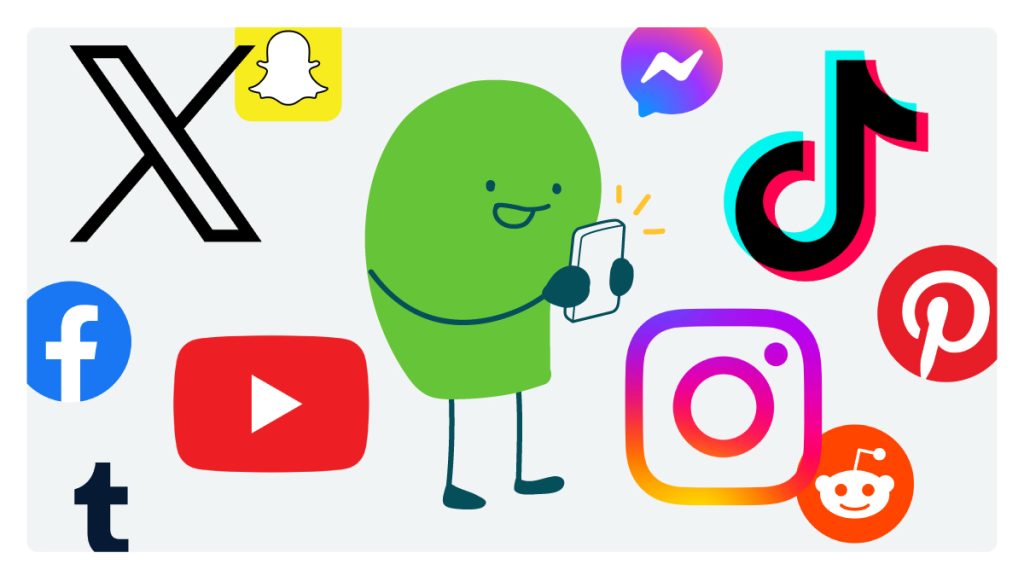
If there’s one thing that gets our attention here at We ❤️ Health Literacy Headquarters, it’s a warning from the U.S. Surgeon General. Past Surgeon General’s reports have raised the alarm about a wide range of health threats facing the nation, from cigarettes in the 1960s to firearm violence in 2024. And now, Surgeon General Dr. Vivek Murthy is calling for caution around a public health threat that’s a bit more slippery to safeguard against: social media.
Back in 2023, a Surgeon General’s advisory on social media and youth mental health advocated for a safety-first approach. The report acknowledged that the evidence for the mental health effects of social media use in children and adolescents is mostly correlational — but it identified 2 main types of potential harm. The first is exposure to harmful content, which can include everything from promotion of self-harm and disordered eating to hate-based content and cyberbullying. The second is what the advisory calls “excessive and problematic use” — something we more commonly call social media addiction.
Dr. Murthy’s more recent call for a warning label on social media platforms suggests that there’s enough evidence to be concerned that the harms may outweigh the benefits — but we can’t yet say for certain if these platforms cause mental health problems the way cigarettes cause cancer.
So how can health communicators help our audiences understand and respond to this type of warning? We don’t have all the answers to this evolving problem, but we do have some thoughts. (And after you read them, we’d love to hear yours!)
Place responsibility for increasing social media safety where it belongs — on government regulators and social media companies. It’s all well and good to warn parents and kids about safety hazards. But social media is not a hot stove, and a simple “hands off” model of individual responsibility won’t work here. With a product as ubiquitous and addictive as social media, we need policymakers to step up and force social media companies to change their practices. So when you’re writing about social media and mental health, direct your main call to action toward the people and organizations who can reshape the industry from the top down.
Share ways for families to protect children in the meantime. While we’re pushing for change from the top, we also know that kids and teens are spending a lot of time on social media right now. When you’re communicating about youth mental health, consider mentioning how social media use might factor in. Provide practical tips for parents to keep younger kids and teens safe when they’re on these platforms. When you’re writing directly to kids and teens, help them recognize the negative feelings they may experience from social media, and encourage them to replace some of their social media time with healthier alternatives like physical activity and in-person time with family and friends.
Meet your audiences where they are… on social media. The elephant in this particular room is, of course, that the very same platforms we’re warning against are often a key part of our health comm efforts — including campaigns aimed at youth and families. But rather than fretting that your health-promoting TikToks may be part of the problem, try using the opportunity to communicate about social media safety. If the Surgeon General’s call does lead to a warning label on these platforms, health communicators need to continue that conversation and help fill the feeds that come after the warning with resources and support.
The bottom line: The Surgeon General’s warning on social media and youth mental health is a call to action that health communicators can help answer — with practical tips for kids and families, and with consistent calls for stronger safety regulations on social media platforms.
Copy/paste to share on social (and tag us!): How can health communicators respond to the Surgeon General’s warning on social media and youth mental health? CommunicateHealth has some ideas: https://communicatehealth.com/wehearthealthliteracy/making-sense-of-the-surgeon-generals-warning-on-social-media/ #HealthCommunication #HealthLiteracy #HealthComm
Browse recent posts